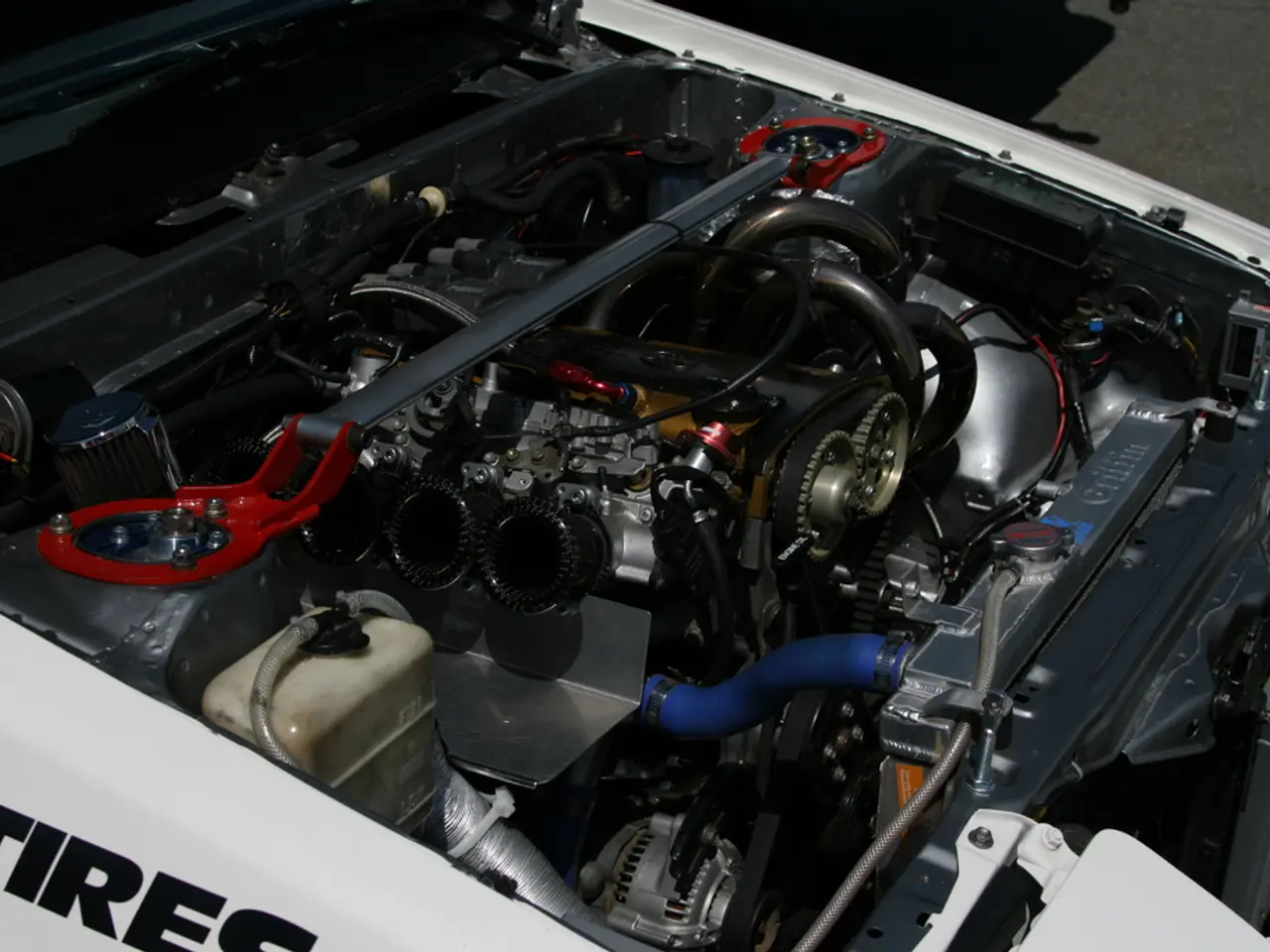Chinese tech company announces projected 1,800-mile range for solid-state electric vehicle battery, submits patent application
In the world of electric vehicles (EVs), solid-state battery (SSB) technology is approaching a significant milestone, nearing commercialization. Major automakers and tech companies, including Toyota, CATL, Huawei, and QuantumScape, are actively developing and planning production timelines, primarily around 2026-2027.
Toyota, one of the leading automakers pioneering SSBs, aims to commercialize next-generation SSBs that offer higher energy density, safety, and longevity compared to lithium-ion batteries. While Toyota publicly targets the mid-2020s for integration in EVs, mass production has faced delays due to complex manufacturing challenges typical for SSBs.
CATL, a major Chinese battery supplier, is aggressively advancing solid-state technology. It has announced plans for semi-solid-state battery mass production starting in 2025, with energy densities around 300-360 Wh/kg, and all-solid-state batteries targeting 400 Wh/kg primarily for automotives and aviation by 2027. CATL’s roadmap reflects China's strong industrial push in solid-state batteries.
Huawei, while primarily a tech and telecom company, is involved in battery technology development and smart electric vehicle platform partnerships. Huawei is believed to collaborate closely with battery manufacturers (likely including CATL and others) to integrate advanced battery tech in EVs leveraging its smart vehicle ecosystem. Huawei's battery technology uses nitrogen-doped sulfide electrolytes to reduce side reactions at the lithium interface.
Specialized battery companies like QuantumScape in the U.S. have made significant technical strides, including improvements in ceramic separators and partnerships with large automakers via Volkswagen's PowerCo. They aim for commercialization as early as 2026, targeting high-volume production with improved solid electrolytes and graphite-free designs.
Industry challenges remain considerable: complex production processes, scaling manufacturing, and cost reduction are still major hurdles preventing immediate mass adoption despite rapid technical progress.
| Company | Status | Targets/Plans | Notes | |-----------|----------------------------------------|---------------------------------|----------------------------------------| | Toyota | Leading automaker R&D & early demo | Commercialization mid-2020s | Facing production & cost challenges | | CATL | Advancing from semi-solid to all-solid | Mass production 2025-2027 | Energy density 300-400 Wh/kg, scale-up | | Huawei | Collaborator & EV platform integrator | Indirect battery development | Partners with battery manufacturers | | QuantumScape | Technical breakthroughs, OEM deals | Commercialization by 2026 | Advanced materials, expanded partnerships |
As the race for SSBs heats up, traditional leaders like Panasonic, Samsung, and other established players are not far behind in their investments in SSB research and development. Solid-state battery development is a race among global automakers and tech companies, including BMW, Mercedes-Benz, Volkswagen, and BYD.
CATL, a Chinese company, is scheduled to begin pilot production of a hybrid solid-state battery by 2027. China has quickly closed the gap in solid-state battery technology compared to traditional leaders. Huawei's claims suggest that their battery could deliver around 1,864 miles of range and achieve a 10% to 80% charge in under five minutes. Toyota has revealed a prototype solid-state battery with a range of about 745 miles and a 10-minute charge time, aiming for commercial release within five years.
In conclusion, solid-state battery development is at an advanced prototype and early production stage globally. Mass usage in electric vehicles by major automakers like Toyota and suppliers like CATL is expected within the next few years, with commercial-scale production anticipated primarily from 2026 onward. However, manufacturing complexity and cost-effective scaling remain critical challenges to resolve for broad adoption.
The competition in solid-state battery technology continues to intensify, with traditional leaders such as Panasonic and Samsung joining the race.
Despite facing production and cost challenges, Toyota remains one of the leading automakers developing this technology, with plans for commercialization by mid-2020s.




